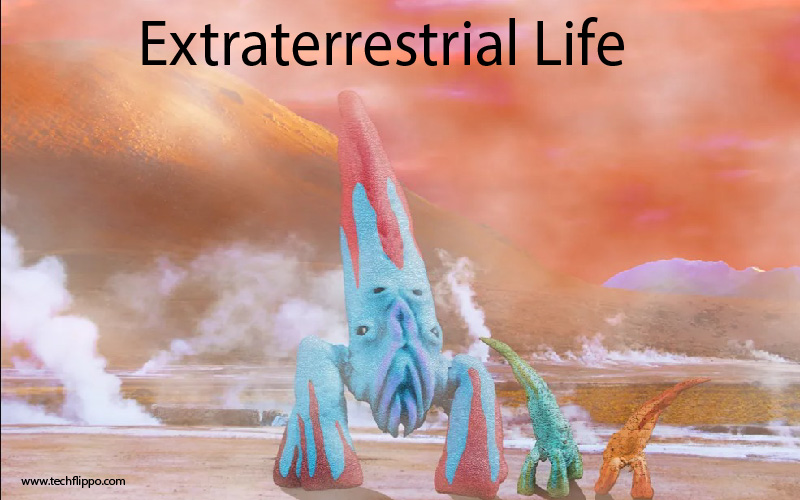Exploring the Search for Extraterrestrial Life
Embarking on a cosmic quest like no other, the search for extraterrestrial life has captivated imaginations and fueled scientific curiosity for decades. From the depths of space to the corners of our own solar system, humanity’s fascination with the possibility of life beyond Earth knows no bounds. Join us as we delve into the realms of SETI, cutting-edge technologies, potential candidates for alien existence, and the profound implications that await us if we were to make contact with beings from another world. Strap in as we explore the thrilling frontier of the Extraterrestrial Life Search!

History of SETI (Search for Extraterrestrial Intelligence)
The history of SETI is a fascinating journey filled with curiosity, innovation, and the relentless pursuit of answers to one of humanity’s most profound questions: are we alone in the universe?
In the early days of SETI, pioneers like Frank Drake laid the groundwork for systematic efforts to listen for signals from intelligent civilizations beyond our planet. The famous Arecibo message sent into space in 1974 was a symbolic attempt to make contact with extraterrestrial beings.
Over time, advancements in technology have allowed researchers to scan vast regions of space for potential signs of alien life. Today, projects like Breakthrough Listen use powerful telescopes and sophisticated algorithms to analyze signals from distant stars.
Although no definitive evidence has been found yet, the history of SETI reminds us that our quest for cosmic companionship is an ongoing adventure fueled by human ingenuity and imagination.
Current Methods and Technologies Used in the Search
The search for extraterrestrial life has captivated scientists and enthusiasts alike for decades, leading to the development of advanced methods and technologies. Today, researchers employ a range of tools to scan the vast cosmos in pursuit of cosmic companions.
One key approach is the use of radio telescopes to listen for potential signals from intelligent civilizations. These telescopes can detect faint radio waves that may indicate communication from distant worlds. Additionally, optical telescopes are utilized to study explants for signs of habitability, such as the presence of water or organic molecules.
Advancements in spectroscopy allow scientists to analyze the chemical composition of explant atmospheres, offering crucial insights into their potential suitability for life. Furthermore, missions like NASA’s upcoming James Webb Space Telescope promise to revolutionize our understanding by peering deeper into space than ever before.
As technology continues to evolve rapidly, so too does our ability to explore the mysteries of the universe in our quest for extraterrestrial life.
Potential Candidates for Extraterrestrial Life in Our Solar System
When it comes to potential candidates for extraterrestrial life in our solar system, the first place we often look is Mars. With its rocky terrain and evidence of water in the past, Mars has intrigued scientists for decades as a possible habitat for microbial life.
Europa, one of Jupiter’s moons, also holds promise with its subsurface ocean that could potentially harbor simple forms of life. The icy surface of Europa hides a vast liquid ocean beneath, kept warm by tidal heating from Jupiter’s gravity.
Titan, Saturn’s largest moon, boasts an atmosphere rich in organic molecules and hydrocarbons. Some scientists believe that this unique moon could potentially host methane-based life forms unlike anything we’ve seen on Earth.
Escalades, another one of Saturn’s moons, have geysers ejecting water vapor into space from its subsurface ocean. These plumes offer a tantalizing opportunity to study potential signs of life without even having to land on the moon itself.

Theoretical Possibilities for Life beyond Our Solar System
As we look beyond our own solar system in the search for extraterrestrial life, the possibilities are both vast and intriguing. With billions of galaxies in the universe, each containing countless stars and planets, the potential for life elsewhere becomes a captivating prospect.
One theoretical possibility is the existence of explants within their star’s habitable zone, where conditions could be conducive to supporting life as we know it. These distant worlds may harbor oceans, atmospheres, and even complex organic molecules necessary for life to thrive.
Another fascinating concept is the idea of extremophiles – organisms that can survive in extreme environments on Earth such as deep-sea vents or acidic lakes. If these resilient creatures exist here, could similar forms of life adapt to harsh conditions on other planets?
Moreover, scientists speculate about technologically advanced civilizations capable of interstellar travel or communication using methods beyond our current understanding. The notion of encountering intelligent beings from distant galaxies sparks curiosity and wonder about what interactions with alien civilizations might entail.
Implications and Impact on Society if We Discover Extraterrestrial Life
Imagine the moment when news breaks that we have made contact with extraterrestrial life. The impact on society would be profound, challenging our beliefs and understanding of the universe. It could unite us as a species, shifting our perspective from terrestrial concerns to cosmic ones.
Religions might need to reinterpret their doctrines in light of this discovery, sparking theological debates worldwide. Governments would face ethical dilemmas regarding how to interact with these alien beings – do we see them as friends or potential threats? Scientists would rush to study this newfound life form, unraveling its mysteries and potentially advancing our own technology leaps and bounds.
The discovery of extraterrestrial life would undoubtedly shape the future of humanity in ways we can’t even fathom yet. Our place in the cosmos would be forever altered by this monumental revelation.
Ethics and Protocols Regarding Contact with Intelligent Alien Life
As we delve into the realm of extraterrestrial life search, it’s essential to consider the ethical implications and potential protocols surrounding contact with intelligent alien beings. The very idea of interacting with civilizations beyond our own raises complex moral questions that warrant careful reflection.
One key consideration is how to approach communication with an alien species. Should we prioritize establishing peaceful dialogue and mutual understanding, or should we proceed cautiously to protect humanity’s interests? This dilemma highlights the need for clear guidelines on how to handle such unprecedented encounters.
Furthermore, there are concerns about the impact of revealing our existence to extraterrestrial civilizations. How would disclosure affect society, culture, religion, and geopolitics on a global scale? These are weighty matters that require thoughtful contemplation before any potential contact is made.
Navigating the ethical landscape of communicating with intelligent alien life forms presents a challenging yet crucial aspect of our quest for cosmic companionship.
Conclusion
In the grand quest for cosmic companions, the search for extraterrestrial life continues to captivate our imaginations and drive scientific exploration. From the early days of SETI to today’s cutting-edge technologies, researchers have been tirelessly scanning the skies in hopes of finding signs of intelligent life beyond Earth.
As we consider potential candidates within our own solar system and ponder the theoretical possibilities of distant explants teeming with life, one thing remains certain: the discovery of extraterrestrial life would forever alter our perspective on existence and our place in the universe.
The implications and impact on society are profound, raising questions about our origins, beliefs, and future interactions with other civilizations. Ethical considerations surrounding contact with intelligent alien beings highlight the need for careful protocols and thoughtful communication strategies to ensure peaceful coexistence.
As we gaze up at the stars and contemplate what lies beyond, let us continue this noble pursuit with wonderment and humility. The search for extraterrestrial life is not just a scientific endeavor – it is a reflection of humanity’s insatiable curiosity and enduring spirit of exploration. Who knows what mysteries await us as we embark on this awe-inspiring journey into the unknown?